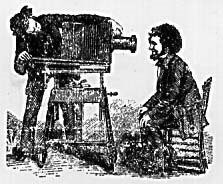When comparing the “Introduction to Racial Studies” of Munns and Rjan to the reading of Sardar and Van Loon, they both have a similar view on how racism was created. Both talked about how during the renaissance and the colonization period the Europeans created their own identity. In doing this, the identity of the people that weren’t European came into view, and were then seen as inferior. A good passage that helps develop this is from Introduction to Cultural Studies “Non-European peoples were despised as inferior and seen as material ripe for exploitation.” (122) This was spawned in Europe and then spread across the world and turned into what is now considered to be racism. Although the two readings had similar theories on the origin of race studies, they both approached it from different angles. Sardar and Van Loon, for example, focused on African American Racism mainly, while citing a lot of African-American cultural theorists, such as Cornel West, bell hooks, and Gates. These theorists talked of such subjects as identity and its relation to political struggles and the “longing to belong.” The Introduction of Race Studies by Munns and Rajan took on a larger variety of races, including Native Americans.
The term that I saw kept coming up and viewed as essential in understanding these readings were identy. The New Keywords described identity as:
“Identity is to do with the imagined sameness of a person or of a social group at all times in all circumstances; about a person or a group being, and being able to continue to be, itself and not someone or something else. Identity may be regarded as a fiction, intend to put an orderly pattern and narrative on the actual complexity and multitudinous nature of both psychological and social worlds.”
The following is an intriguing article I found on black identity. http://www.blackcommentator.com/116/116_black_identity.html
This wikipedia article I also found relevant, that helped clear up some questions about identity regarding the social aspects that the “New Keywords” may have left out. http://en.wikipedia.org/wiki/Identity_%28social_science%29
announcements
This blog was created by and for students in an Introduction to Cultural Studies class at the University of Washington. Through an investigation of urban experience and representation--in theory, in graphic novels and in our own "readings" of Seattle's University District--we considered the formation and history of cultural studies as an (anti)discipline, with a special emphasis on the questions, "What does cultural studies do, and how do you do cultural studies?"
If you'd like to know more about the class, the blog or our U-District artifact project, please contact Gabrielle Dean: gnodean@u.washington.edu.
If you'd like to know more about the class, the blog or our U-District artifact project, please contact Gabrielle Dean: gnodean@u.washington.edu.
Thursday, April 17, 2008
Subscribe to:
Post Comments (Atom)
blog archive
-
▼
2008
(92)
-
▼
April
(35)
- Identity in City of Glass
- History of Origins: Race Studies
- History of Origins: Gender Studies
- History of Origins: Gender Studies
- History of Origins: America
- History of Origins: Race Studies
- History of Origins: Gender Studies
- History of Origins: Race Studies
- History of Origins: Race Studies
- History of Origins: Media and Science
- History of Origins: Media and Science
- History of Origins: Gender Studies
- History of Origins: Media and Science
- History of Origins: European Theory
- History of Origins: European Theory
- History of Origins: European Theory
- History of Origins: European Theory
- History of Origins: European Theory
- History of Origins: America
- History of Origins: European Theory
- History of Origins: America
- History of Orgins: European Theory
- History of Origins: European Theory
- History of Origins: Great Britain
- History of Origins: Great Britain
- Cultural Studies in Britain
- Cultural Studies in Britain
- History of Origins: General
- History of Origins: General
- History of Origins: General
- History of Origins: General
- "Orientalism"
- Are You an Author?
- "Paris, Capital of the 19th Century"
- READING: A WEB MODEL
-
▼
April
(35)

No comments:
Post a Comment